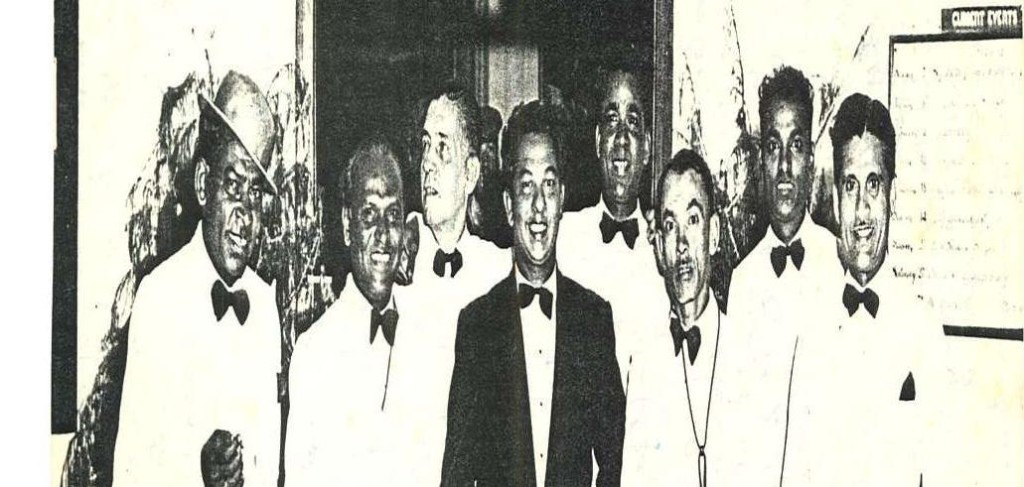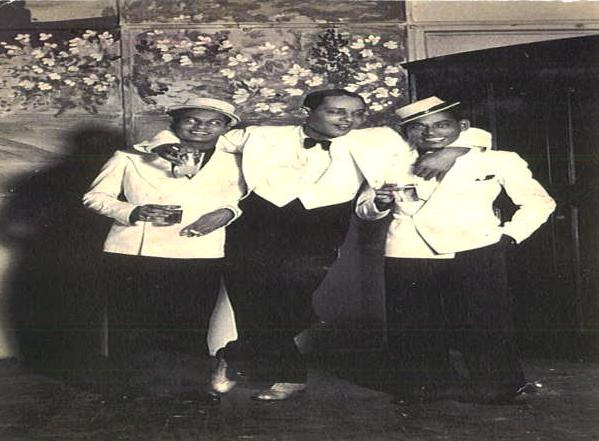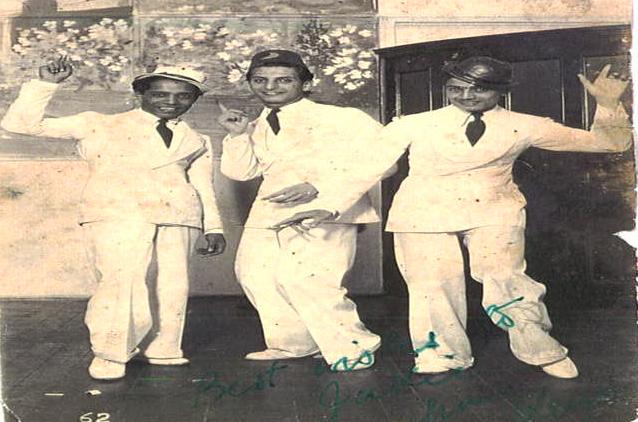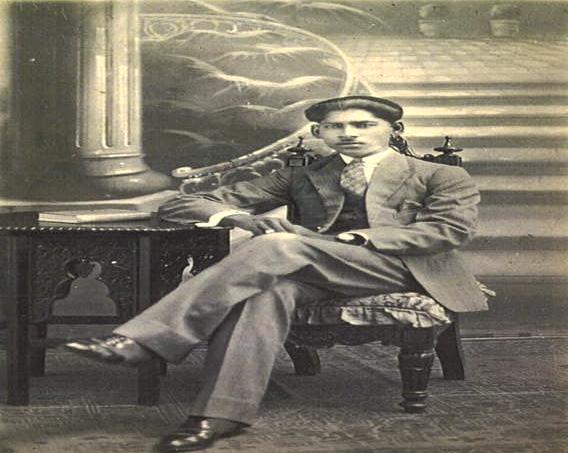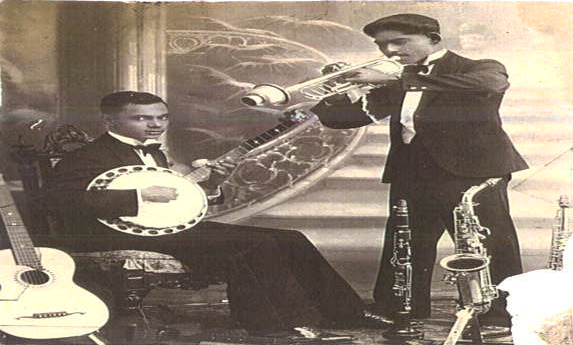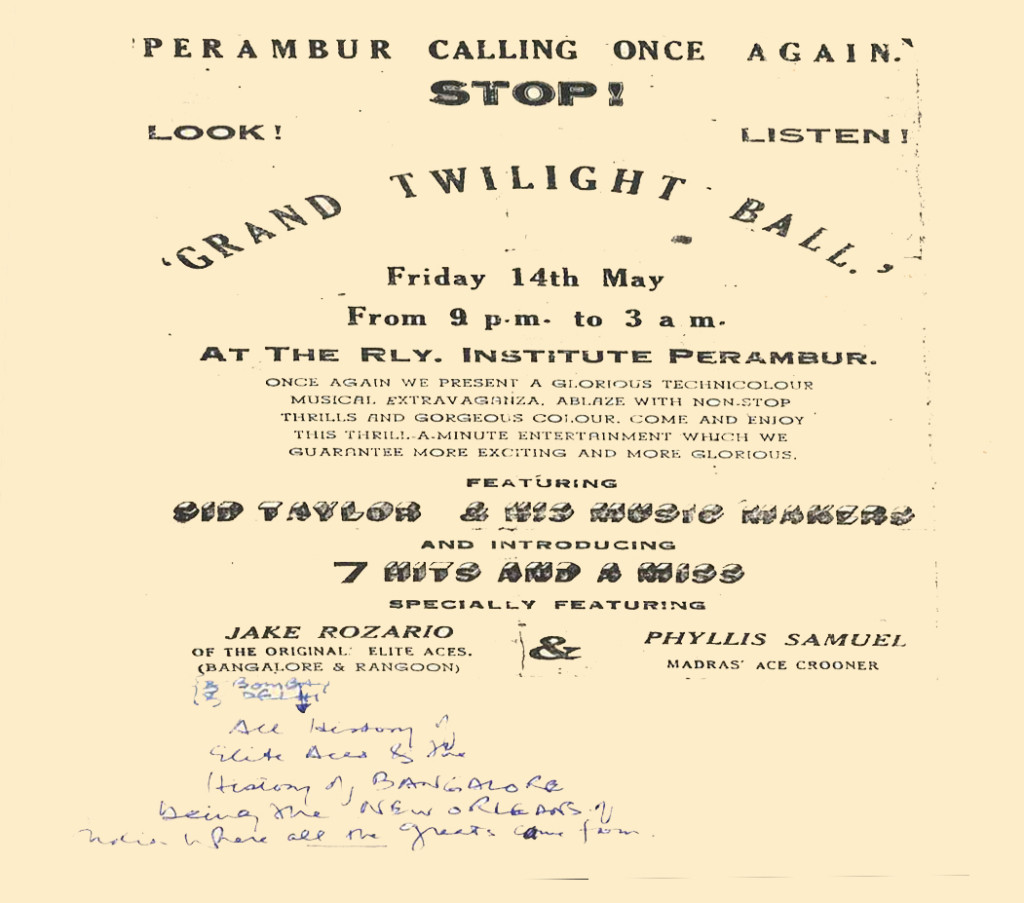 Priyanka ShettyPriyanka ShettyPriyanka ShettyPriyanka ShettyPriyanka ShettyPriyanka ShettyPriyanka ShettyPriyanka ShettyPriyanka ShettyPriyanka ShettyPriyanka ShettyPriyanka ShettyPriyanka ShettyPriyanka Shetty
Priyanka ShettyPriyanka ShettyPriyanka ShettyPriyanka ShettyPriyanka ShettyPriyanka ShettyPriyanka ShettyPriyanka ShettyPriyanka ShettyPriyanka ShettyPriyanka ShettyPriyanka ShettyPriyanka ShettyPriyanka ShettyWTS: Rex, tell us about your experiences from your childhood and your tryst with music, how did it all begin?
Rex: I don’t remember exactly when I started learning, music is a traditional thing for us – it came from my grandfather, to my father and to me – and it keeps on going. I started learning the rudiments of music around the age of 13. My father had a band, Jakes Rosario and his Feet Warmers, and he inducted my brother and me into it at that tender age when we knew nothing about music. He made us play parts in it – my brother was a trumpet player and I was put on the clarinet. Later on we bought an old soprano sax and I used to play on that for some time.
WTS: Tell us more about your father Jacob Rosario.
Rex: Dad was very famous – he had played at the Taj hotel in Bombay and was among the first Indians to tap dance while playing the trumpet. He was also a hockey player, and was a part of the team that was the winner of the 1944 Maharaja gold cup. They went for an exhibition match in Mysore and on the way they met with an accident, and about nine of them died in that accident – my father was spared but he had to amputate his right leg. Just imagine his plight when he was a dancer and a hockey player to lose one of his legs. After that he was not into music much but he joined the studios later in Madras and he has played for many films. Dad was a Louis Armstrong fan, sometimes when he played in Bombay they used to call him the Louis Armstrong of India – great showmanship with the aluminium bowler hat!
WTS: Tell us more about your father’s background.
Rex: Very little of his background is known. He told me that he and his brother learnt from my grandfather Samuel. My grandfather used to be transferred often, sometimes they were in Jamshedpur and sometimes in Bhadravati… in the bargain his education got hampered. My father wasn’t very educated, he then joined the Auxiliary Force of India (AFI) and used to play in the AFI band and he’d skip that and would sneak out to play in the dances and come back later in the night as if nothing happened (laughs) – he’d jump over the fences and get inside. He learnt things the hard way but learnt it very well. Army people are well-trained and whoever they teach, they teach in the right way. That was the advantage that I didn’t have. I had to struggle a lot, to understand itself was a struggle – the theory part of it. My father did teach me the basics very well but by the time I could learn to some extent that would help me go further, he passed away. Dad put us on the right track and the fundamentals were taught very correctly – this is how you have to learn, this is how you have to play, this is how you have to practice. But he was very rude and I wasn’t interested in learning. After he passed away, I thought I wouldn’t play this anymore. I was so against it. Then I said, “No, this is my dad’s tradition, my family’s tradition, forget about what happened to me. I’m going to do something with this.” That’s what I’ve been doing.
WTS: So you come from a family of musicians?
Rex: Yes, my father and his elder brother Paul Rosario were very popular musicians. My father’s elder brother’s sons have also become very famous. One of them, Benny Rosario, has played with Bappi Lahiri and a lot of artistes all over the world and the other one, Lester Rosario, became one of the best drummers in India, he is still in Goa. He’s got a band called Lester and his Swingsters.
WTS: How did your journey as a musician continue from there?
Rex: We were not so frequent with playing initially because we had to find a job and take care of the family so there was a lot of gap in between. Later, I joined LRDE (Electronics & Radar Development Establishment) and there I joined an orchestra that used to play Indian music. Very eminent players were a part of it like Mysore Ananthasami Rao who was a very popular music director, Violin Srinivas who is a very good violinist, Mr. Pawa he’s a great qawwali and ghazal singer. These were the people I worked with – I was just a bachcha who knew nothing but the A B Cs of music. Then I picked up a lot of Indian classical music through Mr. Pawa, he used to guide me and tell me everything about what note to hit, how powerful it is, which note is important, which raga, how to come to it and all such things.
By the time I was 19-20 years there wasn’t much going on with jazz music but I took a liking to it, because right from the beginning, there was jazz music being played in the house. I was very fond of melody. I’d catch up any melody and I used to tell my dad this tune is like that and he’ll write it down and play it. So that sort of a liking I had towards melodies. I was very attracted to jazz music. I realized that time that there’s nothing like this, but we were handicapped without proper schools and material to learn music. Then somehow we had to gather material from here and there.
Finding time to practice was quite tough that time. I got married very early, you can understand after that what will happen (laughs); it was chaos after that. So many things came in between and music became secondary. The most important thing was there was no scope for this kind of music. Whenever we played it wasn’t liked much by the younger generation, but anyway I stuck on to it. I said this is my love and I will die with this, whatever happens.
Earlier to that, I played with orchestras, where they have Hindi music, which had interludes, preludes… I used to write down from the record – transcribe and then play it. That’s when I developed my ear for transcribing. Later I said this is not my kind of music, I’m wasting all my time -till 1978 I was stuck in this. Then I realized it cannot be like this. Slowly I gave up that also. Then we started playing at birthdays, weddings with anybody and everybody. Till 1985 I did this and then said I can’t go on like this. Even if I don’t find the right kind of musicians to play with, I’ll start off with anybody. Then I started The Rex Rozario Quintet in 1985. So I got along with some talented guys and we practiced for 10 days, I took leave and then we did a show at Chowdaiah Hall – that was organized by Deccan Herald. I’ve preserved all those newspaper clippings!
After that, that also broke up. They played for cabarets and all that, you know, because it was their livelihood, and if they didn’t play there was no money in the house. There were a lot of these cabaret restaurants back then. Whenever I was short of money for school fees I’d go and play for 2-3 months and once I had enough money I’d say bye-bye. I didn’t like it, I was forced to do it, you know, I didn’t like to play for somebody who was stripping and all that.
WTS: What were the music trends during your father’s time?
Rex: That time there was a trend for this kind of music at hotels because all the Britishers were there and these musicians would be hired to play there based on contracts for 3 or 6 months to one year. Those days they had the real dancing crowd. They’d play this plus the improvisations while the music goes on. Like Duke Kellington’s band is danceable but still they would do this out of the way stuff. Each one had to read music and read parts to the dot, because it is harmony and you can’t go wrong. If its melody it’s adjustable – you can take any note and it’ll come off somewhere (laughs) – with harmony you can’t do all that – each one’s break is connected like a computer. Especially those western, US or European bands, if you hear them you’ll be amazed how these guys can do the same thing, all of them! If you hear them, all will give that drop, that bend, all will sound the same as if there’s one instrument playing! That kind of skill and talent you won’t get anymore, it’s finished, because the trend is like that. There is too much easy learning and things are easily available on the computer and the internet but you don’t have that human get together and understanding. You’re-inspired-by-me-I’m-inspired-by-you sort of playing and that sort of music is not there anymore. It’s too technical with a lot of shortcuts. It doesn’t work anymore, it won’t work.
WTS: What happened after you put together The Rex Rozario Quintet?
Rex: I knew very little about jazz and the others knew nothing, I said no, come on let’s do it. Somewhere it has to start! After starting that band we felt that we are not up to the level for playing jazz. So we needed a lot of practice, which was a problem for us, because getting a place to practice, getting the instruments, equipment etc. everything was a problem. It was not going the way we wanted it to go. So I had to resign my job in order to pursue music. I had a very good job, I was a class-one officer, a very wanted person and was nominated for National award in my field, but I gave it up. I said music is my first love.
Another thing was that I was not able to get a good saxophone. There was nothing available here and I had to go to Singapore to buy a saxophone. I quit my job, took the money I got from the encashment of my leaves and got about Rs. 60,000. I took that money and went to Singapore, bought a saxophone and came back – that was a student model. I started playing here and there and tried to continue playing jazz music. There was the Jazz Revival Group – Dr. Tom Chandy’s band – we encouraged him and we were the ones to launch it – Bruce, Vinoo and Victor, and I played for this band. Our first show was a show called ‘Swing Time Jazz’. From that time I was in the scene and till now I’m still there, although many other people have come and gone. Denzel Bentley died- when we were just trying to get into the thing in our band, after that he got sick and he died. He was a very good trumpet player; I was very fond of him. For jazz, we need two front-line musicians it’s very important, to weave some harmonies into the music but we cannot do that now. Unless the two of you have that taste and that phrasing idea for jazz, it’s chaos. It’s always been a compromising story throughout.
WTS: What happened after you guys started playing together?
Rex: Even then I wasn’t able to find a nice band. I was with all these guys, each one will come for some time and then they’ll say I’ve got a band. They’d say first preference is for my band, whenever I have a show I won’t come for you. I had no other choice but to say okay whenever you’re free please come and play. Jagdeesh was playing with The Styluses and once I met him at a jam session with Peter Isaac’s band and I asked him, “Would you like to play the kind of music I’m playing?” He said, “If it is challenging I’ll take it up,” and I said, “You come and try it.” Then he stuck on with me, for 2-3 years he played. But it was always a struggle, every time I had to search for musicians. I had to put an ad there at the Peacock hotel – musicians wanted to play for this band. Nobody turned up.
It somehow went on, till now something is happening. It’s not totally off the scene. A lot of jazz programs used to happen those days – foreign bands used to come, now for the past 10 years nothing is happening. They had these yatras – they used to land up first in Calcutta, Bombay, then go to Madras and then come to Bangalore, the last in the circuit. The decline is because rock and metal has taken over. Who wants to sit and study the scale and the chord? They just want to go on the stage. My grandson was telling me one of his cousins says the best part of playing the guitar is going on the stage and breaking it. It’s terrible! It’s laughable but very serious. If such things get into children’s minds, what will they do later?
WTS: How was it trying to learn songs back in those days when you just had vinyl?
Rex: We had gramophones, the LPs – 78 rpm things, and later the tapes came into the scene. We had two gramophones. Dad would mostly play Louis Armstrong, and would write down some parts – it’s called transcribing – you hear it and you write it. Dad used to sit and write parts for everybody – tenor, trombonist, pianist, bass players – those days we had the acoustic bass right – double bass, he wrote parts for everybody except the drummer, and each one had to play their own parts. It was well organized. People who knew music only could sit there and play. My father was a very harsh man, he’d get angry and start shouting and using these bad words (laughs). They used to fear to play with him, he was very strict.
WTS: How would the band rehearse a new song?
Rex: We used to get score sheets- written music, leaflets as well as booklets. Each leaflet would cost about Rs. 20 – all from England or the USA. Nobody from India did anything like that. Those days every band would need to get new numbers, each one will try to beat the other. So they’d get the score for all the Elvis Presley songs, Tony Bennett, Dean Martin, Frank Sinatra, Nat King Cole, Sara Vaughn – all their scores would come in leaflets or booklets. Leaflets would have only 2 leaves, booklets would have about 5-10 songs in each book. The scores, words and piano parts would be there; from there they would try to do their own arrangements.
WTS: How have you seen the live music scene evolve over the course of 30-40 years from hotels in Bombay to orchestras to the jazz music scene to today?
Rex: In the field of jazz, nothing much has happened despite the good talent. There’s nobody to channelize them into this field, there are no good schools to study jazz, no good bands coming in and trying to influence them. To get a good band you need a lot of money and some big company has to sponsor it, it’s a very costly affair. These are the main reason why jazz is not progressing. Those days we had jazz bands playing for weddings, now even that has gone to dogs. Hotels these days want 2-3 piece bands because of various rules and restrictions. So based on this, music is not really doing well except for rock and metal. And DJs have taken over now. Then there were so many dance bands that died after the 70s. Dance bands like Fred Hitchcock Band, Eddie and the Rhythm Stars, Bruce Gabrielli Band, these were the prominent bands in Bangalore that played some decent music – the jazz standards, plus improvising, all that was there. But after that it slowly dwindled down to bands like The Human Bondage and things like that playing only rock and Beatles kind of music. So there’s nothing much in the jazz scene since then, and it is sad to say that after all these years.
WTS: How can one bring music back into musicians?
Rex: That’s a good question, worth pondering over. First of all they should be dedicated – they should have an aim – “I must reach that level”. To reach that level you can get any amount of material now. All that matters is time and dedication, if you have that you can bring in real good stuff because very talented and intelligent guys are there now. It’s easier for them to come to that level faster than the earlier days. You get all the things on the internet, all that you have to do is remember and utilize it in the place where it’s required.
The other day Robert (Xavier) had an iPod and he played a minor 7 flat 5 chord and he switched it on and on the screen that chord window came up with all their alphabetical names, plus if you want to hear the sound, you can press a button and get all the sounds! What more do you want, eh? Got my point? You don’t have to struggle and say “I don’t know what the sound of the minor 7th chord is”. There it was! I said my, this is amazing. We played some tune, very fantastic – it’s by the Nassimento group. He played the tune; I didn’t know the name of the tune. He just switched on the internet and by hearing that sound getting through this equipment – it says the tune is so and so. I said this is magic! It’s like telling your fortune or what are you or what are you thinking! So much is the technological advancement; it’s so easy to get material to your ears. Those days to understand one chord I had to search, ask ten people before I came to know what that was. Where to go and ask first of all? Even if they knew they won’t tell you or they don’t know how to teach. To teach is another gift, everybody cannot teach – my father had the least gift for teaching. He cannot stand nonsense or accept one mistake no matter what your age is or what your level is. So you can’t learn anything, what happens is your interest and inquisitiveness is suppressed. Nowadays a lot of scope is there to do good music; they have to be dedicated and honest. You have to reach your destination, you’ll reach it somehow.
WTS: Is there any hope for revival?
Rex: Hope is there unless these youngsters are brought back and channelized into it. They’re like these flocks scattered everywhere and we need a lot of ranchers. (laughs) You can imagine that scene no – all are going in different directions and you need to bring them into one direction. It’s tough, it’s not impossible but it’s very difficult. To divert the youngsters mind to the right direction is very difficult. Because everywhere you see there’s only heavy music – jumping and skipping.
But they are not to be blamed, it is the family, the way he’s brought up, what he’s exposed to – that is important. Somewhere in the corner one person is exposed to the right stuff, he comes up well. You can’t blame these kids. You show all the things and say don’t choose it, what is he going to do? That is the mindset, children will do anything to get anything they want you can’t control them or lie to them.
You youngsters think of some way to bring back the old, original stuff. Without an audience we are nothing. Back then we had a proper audience and residents, there was no infiltration, no people coming in from different cultures, those people bring their culture, slowly they get onto the stage and have many shows and our children are affected, you are forced to go into that. Everything is adulterated or diluted; it’s not the original and the real stuff. Bangalore folks are very good in music. All the orthodox Hindus stick to Carnatic music and the Marathis are very good in Hindustani. They are superb, you cannot beat the Marathis in Hindustani classical music, they stick to that and they are excellent in that. If such people are exposed to jazz music, they’ll do very well. Now they are trying to do fusion and all that. Fusion is not happening the real way now. If you want to do fusion you must know one thing very well, either you know Hindustani music or you know western classical or jazz or you know Carnatic, then you can combine it some other form of music and call it fusion. Taking some music and mixing it up then everybody starts jamming – that’s not fusion. You have to know something very well before you can mix something else with that.
Everyone after learning a few things in music wants to go on the stage and get applause. Music is not about going on stage. It’s about expressing what’s inside you and treating the people. Your expression should be accepted – that is reciprocation – music is you play, I listen – that’s it. If I like it, I’ll clap if I don’t like it I’ll walk out. That audience-performer relationship should be maintained very well, you have to do justice there; otherwise it’s a flop show.






